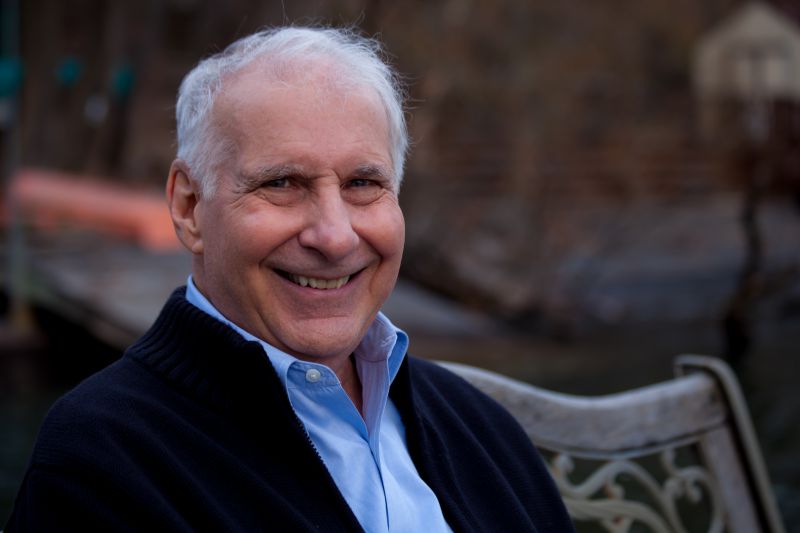Antidepressants Cause Suicide and Violence in Soldiers
- June 20, 2009
- / Admin
- / blogs,huffingtonpost

By Dr. Peter Breggin
06/20/2009
Here are the starting facts: Death by suicide is at record levels in the armed services. Simultaneously the use of antidepressant drugs is also at record levels, including brand names like Prozac, Zoloft, Paxil, Celexa and Lexapro.
According to the army, in 2007 17% of combat troops in Afghanistan were taking prescription antidepressants or sleeping pills. Inside sources have given me an even bleaker picture: During Vietnam, a mere 1% our troops were taking prescribed psychiatric drugs. By contrast, in the past year one-third of marines in combat zones were taking psychiatric drugs.
Are the pills helping? The army confirms that since 2002 the number of suicide attempts has increased six-fold. And more than 128 soldiers killed themselves last year.
One theory states that the increased prescription of drugs is a response to increased depression among the soldiers. In reality, the use of psychiatric drugs escalates when, and only when, drug companies and their minions target new markets. In this case, the armed services have been pushing drugs as a cheap alternative to taking genuine care of the young men and women in our military. Instead of shortening tours of duty, instead of temporarily removing stressed-out soldiers from combat zones, and instead of providing counseling--the new army policy is to drug the troops.
There are many excellent therapeutic and educational programs for helping soldiers and veterans deal with war-related stresses. I recently addressed a national conference on stress in the military where I learned more about these approaches. I talked with many military officers and healthcare providers who want human services to replace the increasing prescription of psychiatric drugs. Some observed that the drugs often change the personality of the soldiers, making them irritable, edgy, and angry. They fear these drugs many unleash impulsive violence. Meanwhile, because many soldiers don't want to take psychiatric medications, they avoid seeking any kind of help.
It's worth re-emphasizing that used of antidepressants is based more on myth than on science. Here are some proven facts totally at odds with medical propaganda:
First, there is no evidence that antidepressants prevent suicide and a great deal of evidence that they cause it.
Second, antidepressants almost never cure depression and instead they frequently worsen depression.
Third, antidepressants never cure biochemical imbalances. Instead, they always cause them. There are no known biochemical imbalances in the brains of depressed people until they start taking toxic psychiatric drugs and every person who takes one of these drugs end up with a significant biochemical disturbance in the brain. That's how the drugs work--by disrupting normal biochemical processes in the brain.
Fourth, when all antidepressant studies are examined as a group, rather than cherry picked by the drug companies, antidepressants are no better than placebo.
FDA approval for an antidepressant requires that the drug companies produce only two positive clinical trials showing that the drug performs better than a sugar pill. So the drug companies carry out numerous studies using their more reliable paid hacks. Back at company headquarters, they then manipulate the data until they can make two studies look positive. Meanwhile, when all the studies are examined in what's called a meta-analysis, the antidepressants are no better than a sugar pill. And of course, they are extraordinarily more dangerous.
Conclusion? Antidepressants are a hoax--in this case, a hoax that is killing members of our armed services.
With billions of dollars at stake, the drug companies also do everything they can to downplay the risks of their products. Thus the pharmaceutical industry failed to find any evidence that antidepressants cause suicidality until the FDA forced them to re-evaluate their old data. The result? Now the FDA requires a black box warning that antidepressants increase the risk of suicidal behavior in children, youth and young adults. Limiting the risk to that age group is of course nonsense; these drugs cause suicidality in all ages.
In addition to suicide, the drugs cause a spectrum of adverse effects that are especially hazardous to soldiers who need the ability to control their emotions, especially their frustration and anger. Many of the most common antidepressant side effects involve over-stimulation. The FDA requires drug companies to list the following negative effects in their descriptions of their antidepressant medications: "anxiety, agitation, panic attacks, insomnia, irritability, hostility, aggressiveness, impulsivity...and mania." We are giving our troops drugs that provide a prescription for uncontrolled, disinhibited violence, including agitation, irritability, impulsivity, hostility, and aggressiveness.
In my latest book, Medication Madness, I describe dozens of dramatic cases in which peace-loving citizens have become suicidal, violent and psychotic from taking antidepressant drugs like Prozac, Paxil and Zoloft.
Meanwhile, as dangerous as it is to take antidepressant drugs, people should not rush into stopping them. After being exposed to these chemical agents for months or years, many people undergo agonizing emotional and physical withdrawal reactions. Some people crash into depression, some feel driven into anxiety, and others become irrationally angry. Many have bizarre neurological reactions like electric shocks in the head and weird feelings in their extremities. Withdrawal from antidepressants should be done gradually with experienced clinical supervision and the supportive involvement of family and friends.
Despite all the emphasis of giving drugs to depressed people, many recover from depression with time on their own, while others receive help from a variety of sources, including therapy, family, and religion. Depression is a loss of hope. Depressed people are unable to see any ethical or viable options that will bring them happiness. They feel stymied, even emotionally paralyzed, because every choice seems bleak or overwhelming. They have given up. That's why, in the extreme, they sometimes want to die. They feel utterly helpless and hopeless in regard to making good lives for themselves.
The restoration of hope is key to overcoming depression and hope can come from many sources. The alternative to antidepressants is all of life: romantic love, family, friends, community, nature, and religion all help people overcome depression. Scientific studies show that everything from a new pet to an exercise program, as well as the passage of time, can relieve depression.
I explain to my patients: You have lost faith in your life--that you will ever love anyone or anything again. Getting over your depression will require pushing through your conflicts and fears, and finding the courage to love again--to love people, to love creative work, to love nature, and to love life.
Modern biological psychiatry reflects and reinforces the worst in human values. Instead of liberating the spirit of overburdened and overwhelmed people, psychiatry denies and rejects the human spirit. It makes up fake biochemical theories that drive people feel even more helpless. Most tragically, psychiatry then subdues the spirit by blunting the functions of the brain.
The principles for overcoming depression are exactly the same principles required for living a good and happy life. Good counseling offers an enthusiastic approach that inspires hope, while helping individuals to understand and to overcome their psychological barriers in order to exercise personal freedom, to take charge of their lives and to pursue happiness according to their own chose ethics and ideals.
I am not talking about unleashing a narcissistic approach--that kind of self-centeredness is more characteristic of depression itself. I'm talking about a whole-hearted embracing of life in which individuals overcome hopelessness, and renew their determination to take responsibility, to love, and to contribute to the family and community.
 Psychiatric Reform Accomplishments
Psychiatric Reform Accomplishments